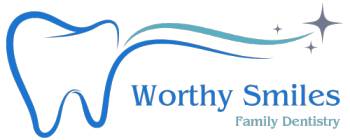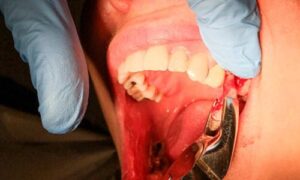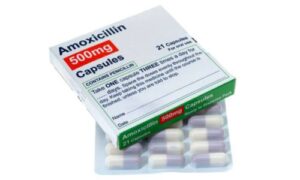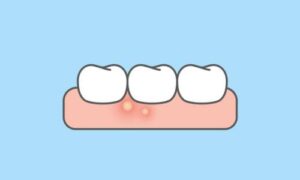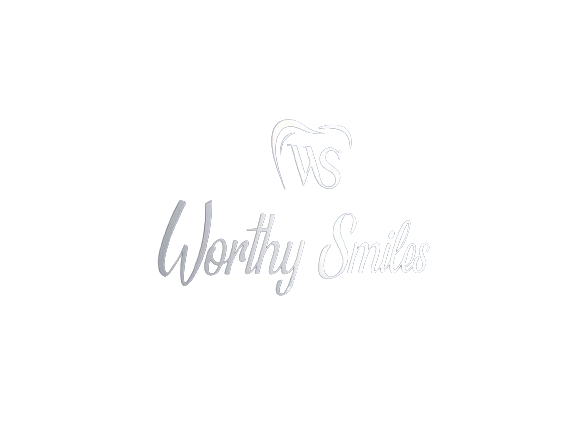Dental health during pregnancy is a topic of dire interest for pregnant women. Let’s talk about it. Your mouth, teeth, and gums are all affected by your dental health, commonly referred to as oral health. It’s critical to your general health. And if you’re expecting, it’s crucial for your prenatal care (medical care you get during pregnancy). You are more likely to have oral health issues when pregnant, and these issues may have an impact on your pregnancy. For instance, one study found a connection between gum disease and preterm birth. Premature birth occurs when a baby is born before the mother has been pregnant for 37 weeks. Compared to full-term babies, premature babies may have more significant health issues at delivery and later in life.
During pregnancy, taking proper care of your mouth, teeth, and gums will help you have a successful pregnancy and healthy offspring.
What impact does pregnancy have on your oral health?
Your teeth and gums may suffer from bodily changes that occur during pregnancy. For instance:
Several hormones, including progesterone and estrogen, are in higher amounts during pregnancy. These may make you more vulnerable to developing specific oral health issues.
Your oral health may be impacted by the foods you consume. Your eating patterns could alter. During pregnancy, you could consume more certain foods than you did.
You may brush and floss less often than you did before becoming pregnant. This can result from your gums being sore or you being more exhausted than usual. Some women may feel queasy after cleaning and flossing their teeth (feeling sick to their stomach).
Your chance of developing some dental issues while pregnant may be increased by several changes, including:
Cavities: These are little spots on your teeth’s surface that have been harmed. You are more prone to develop cavities if you are pregnant. You may give your infant the bacteria that causes cavities during pregnancy and after delivery. Later on, this might lead to issues with your baby’s teeth.
Gingivitis: Gum inflammation (redness and swelling) is called gingivitis. It may result in more severe gum disease if left untreated. Your risk of gingivitis may rise due to pregnancy hormones. Gingivitis affects 60 to 75 percent of expectant mothers. Some warning signs and symptoms are:
- Redness and enlargement
- Discomfort in the gums
- Bleeding gums even while gently brushing your teeth
- Glossy gums
Tooth decay. High amounts of progesterone and estrogen during pregnancy may temporarily weaken the tissues and bones that support your teeth. Your teeth may become loose as a result.
Chronic gum disease (also called periodontitis or gum disease). Gingivitis may develop into periodontal disease if left untreated. The gums get seriously infected, and the teeth’ supporting bones also have issues. You may need to have your teeth taken if they become loose (pulled). Bacteremia may result from periodontitis (bacteria in the bloodstream). This dangerous ailment requires prompt medical attention. Gum disease that is severe has a link to smoking.
Enamel erosion Too much stomach acid may contact your teeth if you vomit due to morning sickness. Your teeth’s enamel, which is their hard surface, might be harmed by this acid. Pregnancy-related nausea and vomiting, often known as morning sickness or NVP, typically occurs in the first few months of pregnancy.
What are the telltale indications and symptoms of oral issues when pregnant?
Call your dentist if you have any indications or symptoms of dental issues. A condition’s symptoms are something another person may see in you or learn about you, such as a rash or a cough. Symptoms are invisible to others but felt by you, such as a sore throat or wooziness.
The following are warning signs and symptoms of dental issues:
- Poor breath
- Missing teeth
- Gum lumps or sores in the mouth
- Newly formed gaps in your teeth
- Gum recession, which occurs when the gums pull back from the teeth, and the tooth roots are visible, or gum inflammation (where your gums meet your teeth)
- Gums that are readily bleeding, red, swollen, sensitive, or glossy
- Toothache or another discomfort
Call your dentist as soon as you experience any discomfort or swelling. If you have an infection, you need to be treated as one to help your baby avoid difficulties.
How can dental issues be avoided when pregnant?
Check your teeth often, both before and during pregnancy. When you visit the dentist for a checkup, say:
If you are or intend to get pregnant
Any medication you take. This includes herbal items, dietary supplements, and prescription and over-the-counter medications. A prescription drug is one that your doctor has authorized you to use to address a medical issue. It would help if you had a prescription (an order from your doctor) to get the medication. Without a prescription, you may purchase over-the-counter (OTC) medications, such as painkillers and cough syrup. When you don’t receive enough specific nutrients from your diet (such as iron or vitamin B), you may use a supplement to make up the difference. A herbal product composed of herbs, such as a tablet or tea (plants used in cooking or medicine).
Suppose you are expecting a high-risk baby. If you have a long-term illness, difficulties from a prior pregnancy, or other circumstances that might endanger your health or the health of your unborn child, your pregnancy may be high-risk. High-risk pregnancies have a higher chance of complications for you, your unborn child, or both of you.
If your prenatal care physician has discussed your dental health with you
Prenatal and postpartum dental exams are crucial so your dentist can identify and address teeth issues early. Additionally, regular dental cleanings support the health of your gums and teeth.
Are dental X-rays safe to take while expecting?
Yes. Regular dental treatment includes X-rays. Dental X-rays may reveal issues with your teeth, gums, and mouth’s supporting structures. A medical test called an X-ray utilizes radiation to create an image on film. When exposed in excess, radiation is a kind of energy that may be bad for your health.
Pregnancy is safe for dental X-rays. Make sure your dentist is aware of your pregnancy or attempts to get pregnant if she wants to take an X-ray of you. Your dentist wraps you with a special apron and collar to protect you and your unborn child while using shallow doses of radiation.
Dental health during pregnancy – How are dental issues handled?
Make sure your dentist is aware of your pregnancy if you have a dental issue that requires care. You can postpone therapy until after the delivery of your child, depending on your health. The following treatments are safe to use while pregnant:
Medication, such as analgesics and antibiotics for infections. Pregnant, your dentist may prescribe safe medicines for you and the unborn child. Inform your prenatal care provider if your dentist has prescribed you any medication. Never take a medication without first discussing it with your prenatal care provider.
A local anesthetic Medicine that reduces or avoids pain is known as anesthesia. Local anesthetic is applied to a particular area of the body, such as the mouth, before receiving a dental filling or having a tooth extracted. I am utilizing this medication while pregnant is safe.
You may get dental care at any point while pregnant. Try to arrange elective treatments—those not urgently required to preserve your health or the health of your unborn child—during the second trimester.
What actions can you take to guard against dental issues?
Here are some tips to help you maintain healthy teeth and gums:
Use fluoride toothpaste to brush your teeth twice daily, and floss once daily. Make use of a soft-bristled toothbrush. Plaque may be removed, and your teeth and gums can be kept healthy with regular brushing and flossing.
Use antacids or rinse your mouth with one teaspoon of baking soda solution in 1 cup of water if the vomiting prevents brushing your teeth. You may lessen the quantity of acid in your mouth by rinsing. Medicines called antacids to work to reduce stomach acid. They are available without a prescription from your physician over the counter. But before taking any medication—not even over-the-counter ones—talk to your doctor.
Even when pregnant, schedule regular dental checkups with your dentist every six months (twice a year). Inform your dentist what you are expecting during your visit.
Essential nutrients may be provided to you and your developing child by eating nutritious meals. Eat wholesome meals and moderate sweets. Fruits and vegetables, lean meat, whole-grain bread and pasta, and low-fat dairy products are healthy eating. Limit your intake of sugary meals and beverages, and choose water instead. Your baby’s teeth erupt between three and six months during pregnancy. Your baby’s teeth develop healthily with nutrients like calcium, protein, phosphorus, and vitamins A, C, and D.
